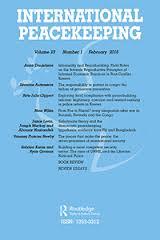Statebuilding, Conflict and Narcotics in Afghanistan: A View from Below
Jan Koehler, Christoph Zürcher – 2007
This essay explores the interdependence between statebuilding, narcotics and conflict through an analysis of interviews and a survey conducted, in the spring of 2005, in the Laghman and Nangarhar provinces of Afghanistan. Rural Afghanistan is characterized by weak conflict-processing mechanisms, combined with a high propensity towards the escalation of violence. State-sponsored institutions for conflict processing hardly exist, and donor attempts to prop up traditional institutions, such as the village shura, as a substitute for local government have failed to produce tangible results. Farmers widely acknowledge the benefits of opium as one of the few available cash crops. As a result, competition over scarce land and propensity for violence are affected indirectly by the drug economy. The study concludes with a criticism of current poppy eradication efforts. Under an informal ‘eradication contract’, provincial leaders are induced to comply with the request of the central government to reduce opium cultivation, in exchange for increased political autonomy and the promise of donor funds.

